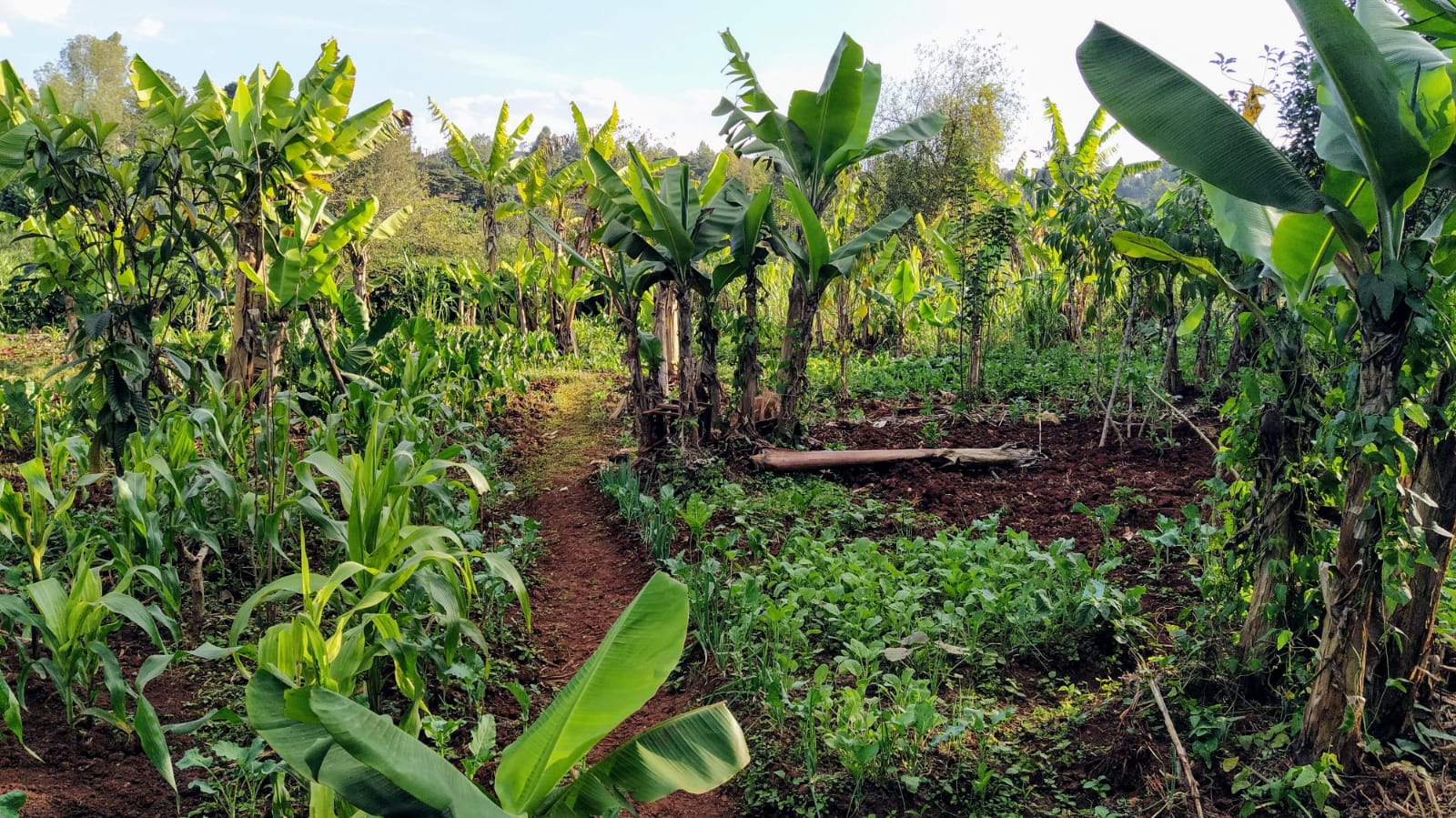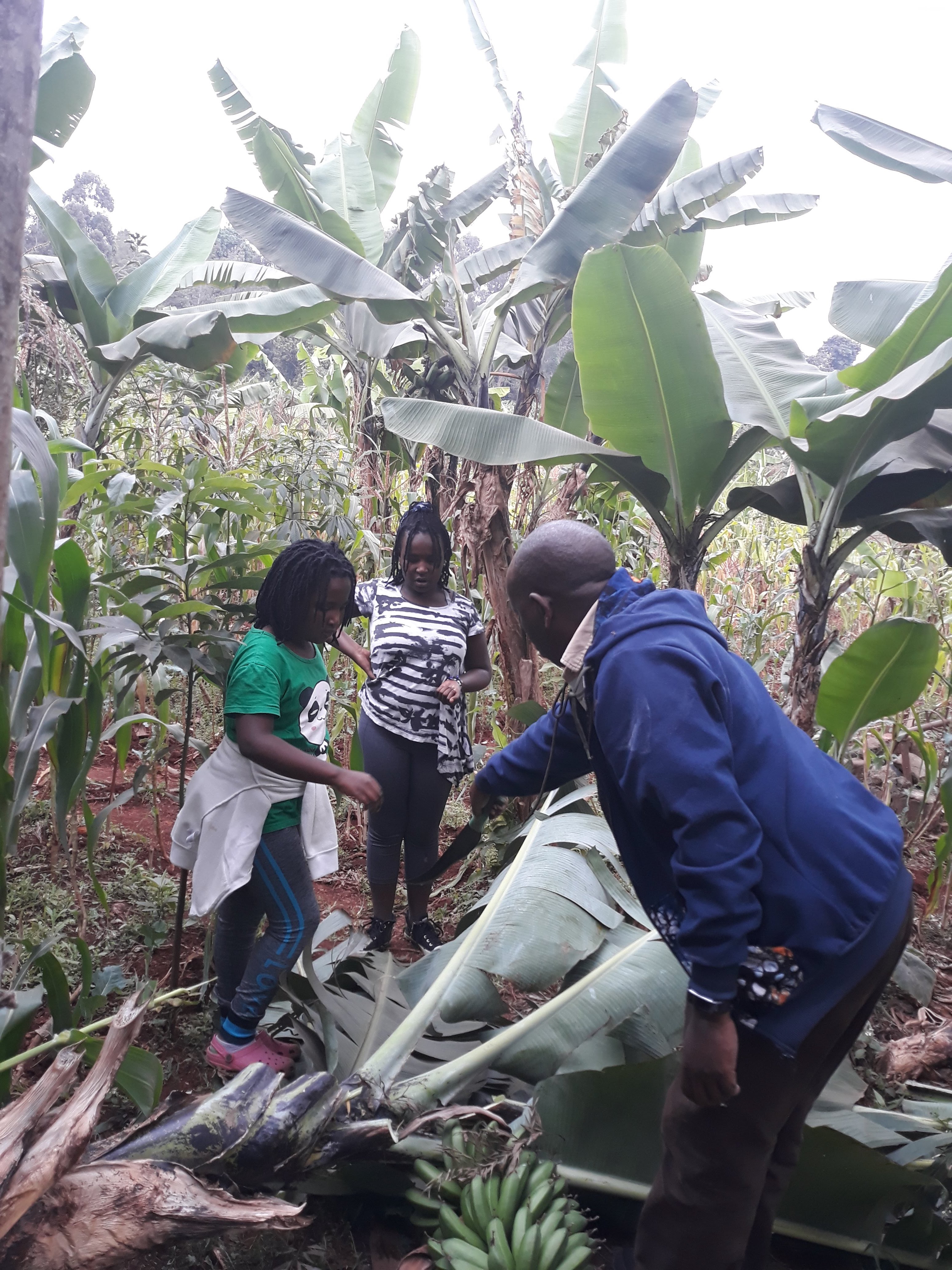Search


“Wooi, niī ndingīcoka rūgūrū.”
More than once, I heard my mother-in-law wail those words, “I can never return to the west!” She would shake her head, bend forward and cover her face with her palm as though to ward off the memory of her adventures in the west.
Now, to be clear, my mother has never stepped foot in Europe. So, rūgūrū (west) here refers to the western part of Kenya, which practically starts on the doorsteps of Nairobi, stretching all the way to Lake Victoria. While growing in the heart of Kikuyu land, I would overhear snippets of conversation, relatives of neighbours updating each other that such and such family had relocated to rūgūrū. It conjured images of distance, foreign, and a hint of the derogatory. It’s the home of … those other tribes, different from us.
Fifty years ago, my father-in-law moved his family to rūgūrū, about 170 Kms westwards from his ancestral home. The reason is a combination of factors; pressure on the land, conflict, need for money for the growing family, and maybe even a sense of adventure. He eventually acquired land in these greener pastures that were anything but green. It was an arid land that had to be tamed into submission, wrestling the thorn tree shrubs to put up mud-walled houses and farm. It was a wildland and family folklore boasts of scary encounters with rhinos.
I came to the scene, just over 20 years ago when his son took me home for an introduction. By this time, it was a typical homestead. The homestead had one building for a kitchen adjacent to the one that housed the living room and bedrooms. To the side was a house occupied by the young men as they came of age. On the other side was a house for the sheep and goats, a store and a shed for the cows from which mum would get milk enough for chai and a little to sell. There were always chicken at various stages of growth and the occasional duck or turkey. The rest of the land was separated into portions to grow the Kikuyu staples; maize, beans and potatoes. There were portions where they would experiment with horticulture, a dam, and tanks to trap the rainwater. To see this mature green farm, one would have to try very hard to conjure up the images of the barren land they had settled in.
As the now-ageing folk went about their business, mother nurturing her prized orange trees and father planting yet more trees and trimming the hedges to make sure they were cut just so, the country went to the polls as we have done every five years. We voted, a president was sworn in, and war erupted. My parents became the proverbial grass that gets injured when two bulls go at each other. What followed for them were days of watching plumes of smoke draw nearer (torched houses) and nights of listening to screams and wailing from distant villages sounding ever closer. They were hemmed in between the approaching terror on one side and a road barricaded by machete-wielding gangs on the other. They were marooned on an island that was quickly going up in flames. The only question was how long it would be before the attackers reached their village.
Where was the law enforcement? The villagers did what they could. By day they would band together in the local market finding comfort in unity, keeping up with the intelligence and trying to work a way out. Nights were spent on the farms, but not in their bedrooms on their mattresses. The fear of being burnt alive in their houses was too great. The closest they came to sleep was to catch a few winks as each leaned against the back of a tree. They will never forget the horrific murder of their immediate neighbour, an old man, shot through with an arrow. He had sneaked to his house alone during the day. Maybe to salvage a treasure, he had forgotten?
Finally, a way opened. At the end of that tense week, the barricaded road was cleared. Some siblings went to pull out the old folk. Within a few terse hours, they pulled down the 40-year-old homestead, packed anything that could be packed, livestock, household stuff and all, and made their way out.
The Old Testament has the story of a man who emigrated to a neighbouring country with his wife and two sons during a famine. The sojourn did not end well. He and his two sons died in that foreign land. His heartbroken wife returned home and, on arrival, said, “Don’t call me Naomi,” she told them. “Call me Mara, because the Almighty has made my life very bitter. I went away full, but the Lord has brought me back empty. Why call me Naomi? The Lord has afflicted me; the Almighty has brought misfortune upon me.”
On return from the west, my parents settled not too far from the area where they had grown up and lived in the early years of their marriage. They could not stand going back to the very exact place. They had left more or less empty and had come back empty. This may well have been the story of Naomi, who had left home in famine for greener pastures only to come back empty-handed.
This was actually not the case. Her dutiful daughter in law Ruth had stuck with her. She took care of her and eventually made her a grandmother and the great grandparent to famous King David, a forerunner of Jesus. My parents were also more fortunate than many of their neighbours and others around the country affected by what we now refer to as the 2007/08 Post Election Violence (PEV). Although they had been forced to start all over in old age, had lost the property they had poured sweat and toil into – they now had their children to cushion their resettlement. Indeed, they had a choice on where to resettle – that’s why mum could vow never to return to the west.
Although we see the mercury rising higher and higher in this election year, this is not a political statement. It’s more a reflection on the story of Ruth, a book in the bible without a record of God speaking directly or doing anything out of the ordinary. Instead, it contains amazing coincidences that point to God’s providence.
We love my parents’ new home. A much smaller farm that is resplendent in green, overflowing with bananas, green leafy vegetables, arrowroot tubers by the flowing stream, maize, beans, onions and sugar cane. There are gooseberries for the grandchildren to hunt, and it’s in a more central place for quick visits from their children and grandkids. It makes it easier to manage medical care for the various aches brought on by age.
Are we happy that they had to go through what they did? No! But in it we see God’s providence; his almighty and ever-present power, whereby, as with his hand, he still upholds heaven and earth and all creatures, and so governs them that leaf and blade, rain and drought, fruitful and barren years, food and drink, health and sickness, riches and poverty, indeed, all things, come to us not by chance but by his fatherly hand.
Sharing is caring
I did a writing workshop in Nairobi in April 2008. What a precious time it was, working with women from a variety of tribal groups, united in their desire to write children’s stories that would help to overcome the hate and violence they had seen. I will pray that Kenya not go through that again. Divisions in America have not been so bad in a hundred and fifty years. We could use your prayers as well.
Oh wow! It was still quite flammable then, it must have been quite an experience. May God help us all.
The last day we ended up staying longer because the women were getting text messages to avoid a major street they needed for getting home. But that all gives me an awareness of how to pray now.
I love how you play with words to create a harmonic story with a deep strong message.
I love the story!
Thank you for visiting this space and reading.